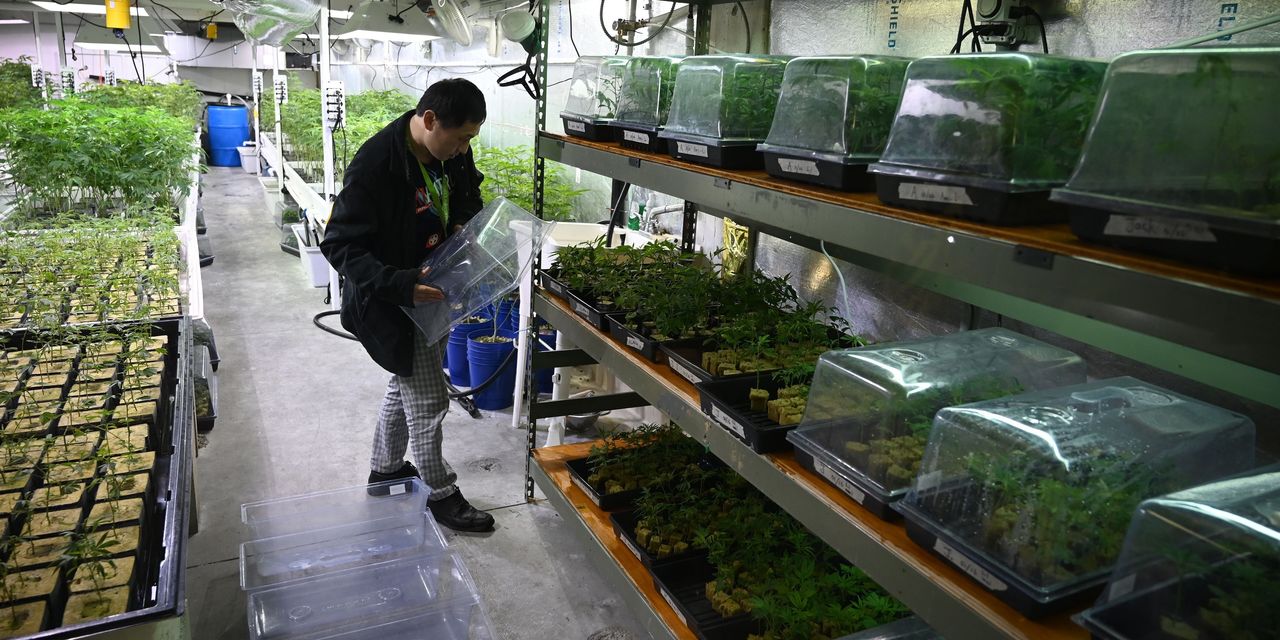
Rep. Ed Perlmutter, the top advocate in the House for cannabis-based businesses to get access to the banking system, has high hopes this year will be when Congress does something on the issue — at least if the Senate gets around to taking it up.
The House on Monday passed Perlmutter’s bill that would keep banking regulators from punishing banks and credit unions that do business with “legitimate” cannabis-related businesses THCX, +2.94%. The measure got more than 300 votes.
Read: Cannabis-banking bill approved by House; future in Senate uncertain
Because federal drug law includes cannabis on the schedule of controlled substances, businesses in cannabis-friendly states have to conduct their operations mainly in cash, which supporters of cannabis banking say leads to more violent crimes associated with the industry.
“The Senate just needs to do something,” Perlmutter, a Colorado Democrat, said in an interview with MarketWatch.
“Whatever actions they take, I would applaud that. And then we can see whether or not they can pass it in the Senate and whether or not the House would agree to it or whether we have to go to a conference committee to iron out differences,” he said.
The bill passed the House on a bipartisan 321 to 101 vote, with almost exactly two-thirds of the votes coming from Democrats and the other third from Republicans.
The bill’s fate in the Senate is uncertain. Still, unlike in 2019 when the bill, dubbed the SAFE Banking Act, also passed the House only to die in the then-Republican Senate, Perlmutter said its chances are better in a Democratic Congress.
Now read: There’s no ‘immediate path forward’ in Senate for cannabis banking bill, analyst says
“I think the prospects are good that SAFE Banking — modified by the Senate, added to, subtracted from — I think there’s good prospects for it passing this year,” he said.
The next hurdle will be whether the bill moves in the Senate Banking Committee on its own or gets attached to related issues that may make it harder to pass. For example, Senate Banking Chairman Sherrod Brown has in the past raised the prospect of linking the changes in Perlmutter’s bill to changes in drug sentencing laws because of the disproportionate impact those laws have had on minorities in the past.
Perlmutter said Brown told him several months ago a bill had to have “social justice reform piece of this.”
“Whatever you can put together, we’ll review it in the House and my guess is we’ll be pretty accepting of what they might put together,” he said he told Brown.
On Tuesday, Senate Majority Leader Chuck Schumer said he favored ending the federal prohibition on marijuana. He plans on working with Sen. Cory Booker, a New Jersey Democrat, and Sen. Ron Wyden, an Oregon Democrat, on a bill dealing with drug law enforcement, public health and taxes and regulation.
“This was the approach taken by legislators in New York. I believe it is the right approach and serves as a model for how we should deal with this issue in Congress,” Schumer said.
Perlmutter said he thinks his bill could get 60 votes, enough to overcome a filibuster in the Senate, if it came to the floor on its own. But tying it to other issues would make it harder.
“If they were to deschedule [marijuana], great. But I know that’s easier said than done,” Perlmutter said.
Indeed, while the banking bill has support from groups often thought of as Republican-leaning, such as bankers and law enforcement groups, actual decriminalization is more partisan.
“I don’t see any significant Republican support for decriminalizing, nor would I imagine there’d be a majority of senators who would decriminalize,” Sen. Roy Blunt, a Missouri Republican, told reporters Monday.
Perlmutter said 47 states have made some type of effort to ease up on cannabis laws, either by decriminalizing marijuana at the state level, allowing medicinal use or allowing the sale of cannabis-derived products.
“That’s the vast majority of America. So I think, just based on that, whether you’re a Democrat or a Republican, it’s going to move,” he said.






